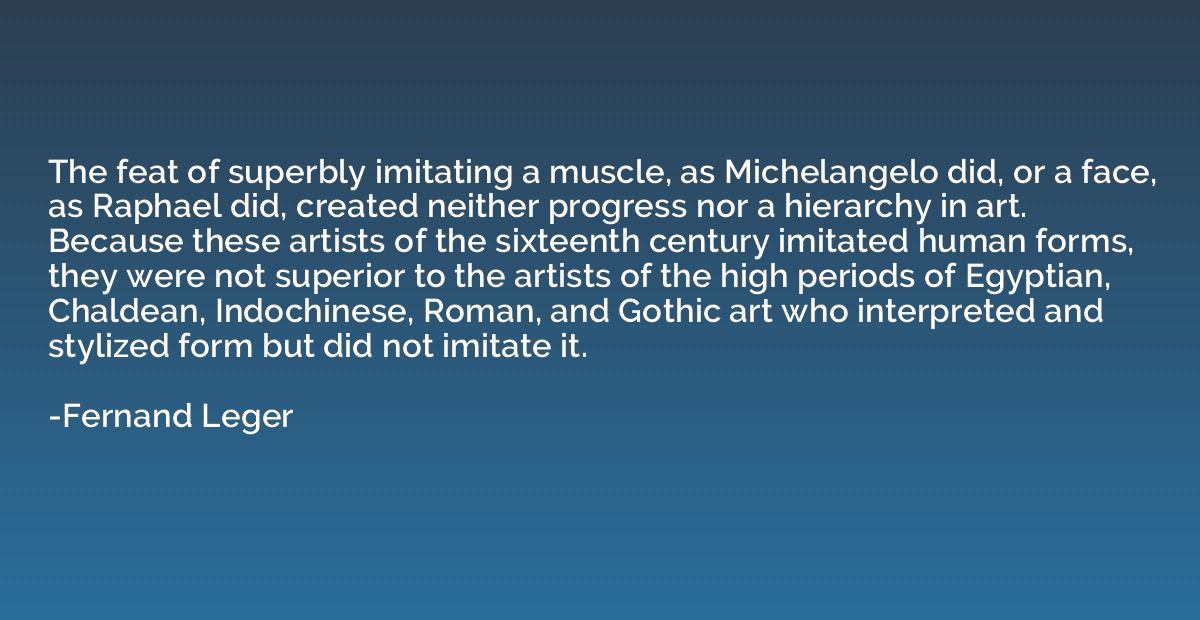Quote by Fernand Leger
The feat of superbly imitating a muscle, as Michelangelo did, or a face, as Raphael did, created neither progress nor a hierarchy in art. Because these artists of the sixteenth century imitated human forms, they were not superior to the artists of the high periods of Egyptian, Chaldean, Indochinese, Roman, and Gothic art who interpreted and stylized form but did not imitate it.

Summary
This quote suggests that imitating or replicating human forms, as seen in the works of Michelangelo and Raphael during the sixteenth century, does not inherently signify progress or superiority in art. While these artists achieved remarkable realism, it argues that their focus on imitation did not make them superior to earlier artists from ancient civilizations like Egypt, Chaldea, Indochina, Rome, and the Gothic era. The quote implies that rather than imitating forms, these earlier artists interpreted and stylized them, offering unique artistic expressions that should not be disregarded or considered inferior.














